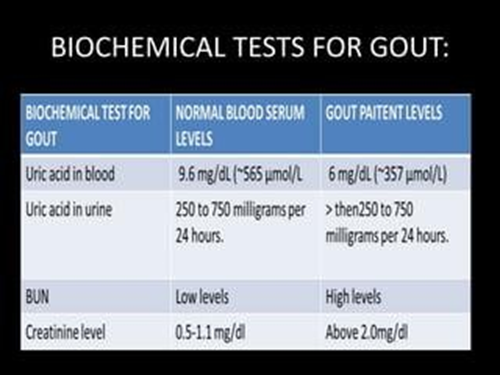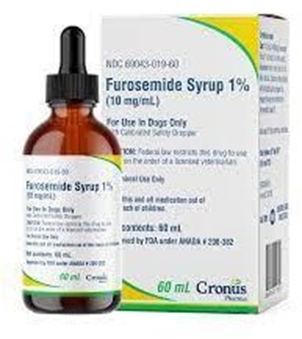The nurse is caring for a client who was diagnosed with "gouty arthritis." Which laboratory test is most important to perform to confirm this diagnosis?
arterial blood gases
uric acid levels
culture and sensitivity
potassium levels
The Correct Answer is B
A. Arterial blood gases are used to assess oxygenation and acid-base balance and are not specific to diagnosing gouty arthritis.
B. Gouty arthritis is characterized by elevated uric acid levels in the blood, leading to the deposition of urate crystals in the joints.
C. Culture and sensitivity tests are used to identify infectious organisms and determine their susceptibility to antibiotics, not for diagnosing gouty arthritis.
D. Potassium levels are not specific to diagnosing gouty arthritis and are typically measured as part of routine laboratory tests to assess electrolyte balance.

Nursing Test Bank
Naxlex Comprehensive Predictor Exams
Related Questions
Correct Answer is C
Explanation
A. Benign tumors generally grow slower than cancerous cells, so this statement is inaccurate.
B. Benign tumors are not cancerous; they do not invade nearby tissues or spread to other parts of the body.
C. Benign tumors are non-cancerous growths that do not invade nearby tissues or spread to other parts of the body. Therefore, they typically do not impair the function of the organ where they are located.
D. Unlike malignant tumors, benign tumors do not spread to other organs or lymph nodes.
Correct Answer is ["8"]
Explanation
To answer this question, the nurse needs to use the formula:
mL = (mg x 1 mL) / mg
where mg is the prescribed dose and mL is the available dose. Plugging in the values, we get:
mL = (80 mg x 1 mL) / 10 mg mL = 8 mL
Therefore, the nurse should administer 8 mL of furosemide oral solution.

Whether you are a student looking to ace your exams or a practicing nurse seeking to enhance your expertise , our nursing education contents will empower you with the confidence and competence to make a difference in the lives of patients and become a respected leader in the healthcare field.
Visit Naxlex, invest in your future and unlock endless possibilities with our unparalleled nursing education contents today
Report Wrong Answer on the Current Question
Do you disagree with the answer? If yes, what is your expected answer? Explain.
Kindly be descriptive with the issue you are facing.
